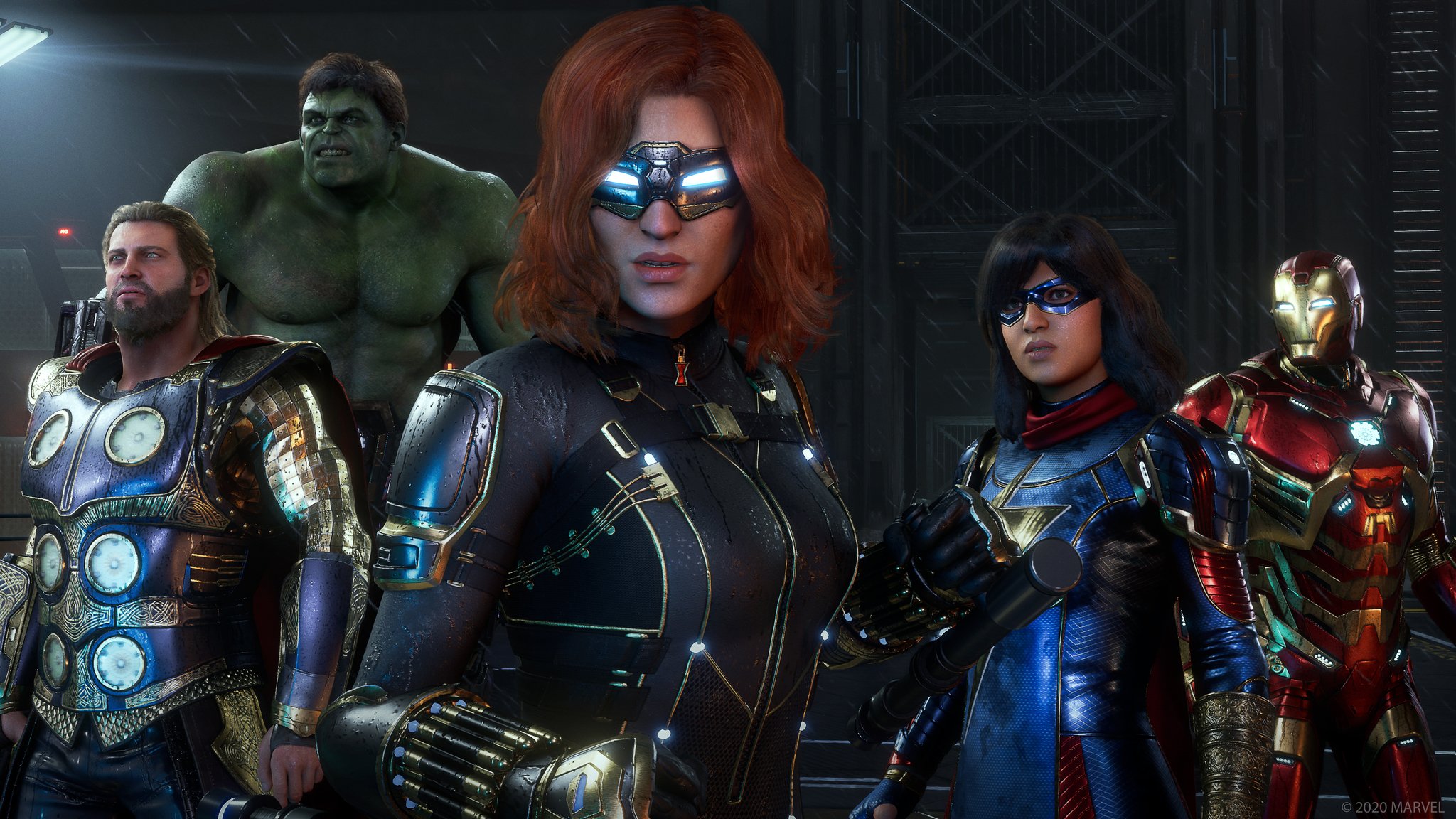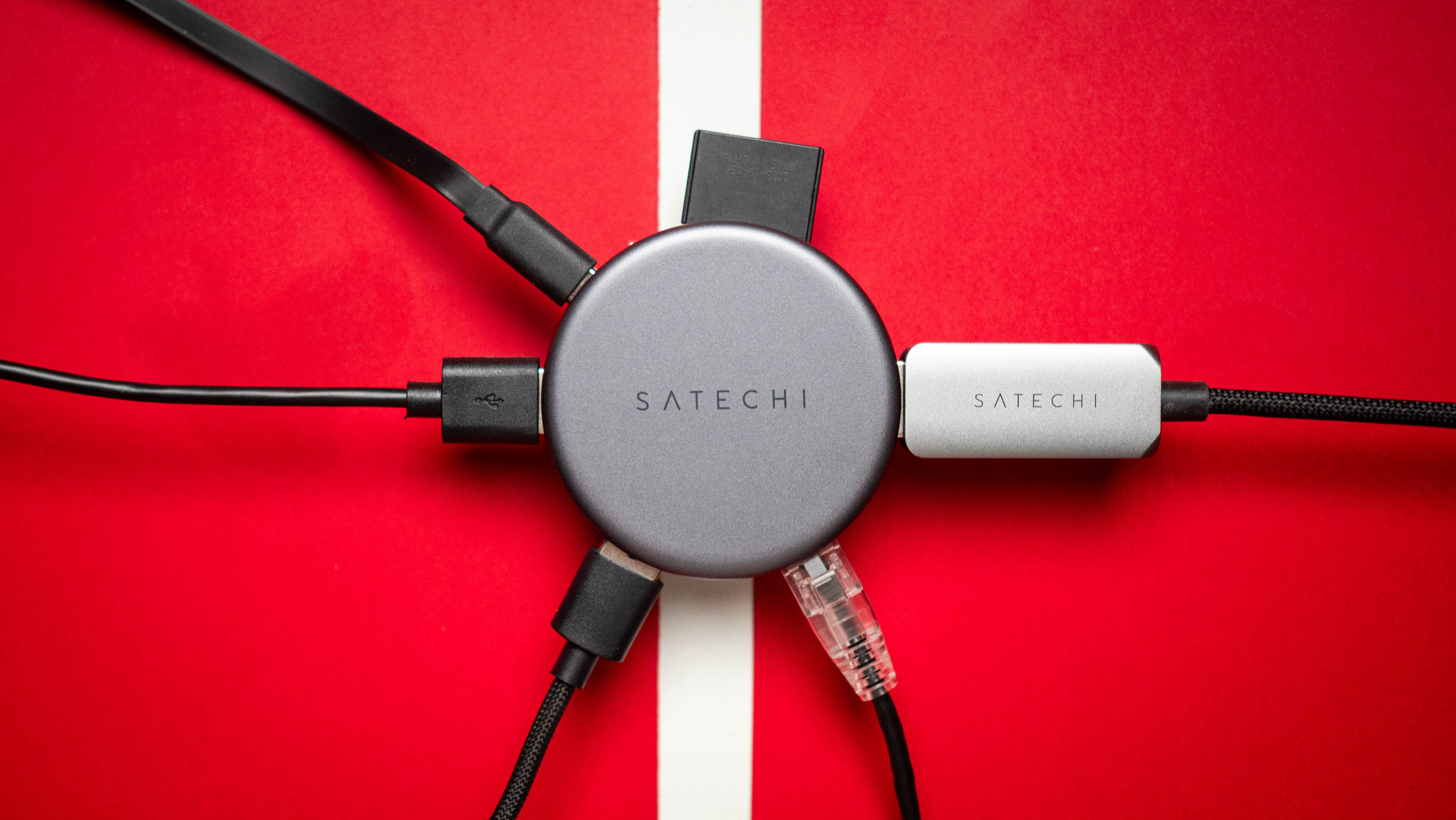Android Central Verdict
Bottom line: Marvel's Avengers has an identity crisis. It has a strong story at its core with relateable characters and great combat, but it struggles in the multiplayer, the latter of which is a key part of the game's longevity.
Pros
- +
Great writing for each character
- +
Kamala Khan is a charming lead
- +
Gameplay is surprisingly complex
Cons
- -
Multiplayer maps are repetitive
- -
Weak communication system
- -
Enemies are interchangeable
- -
Rewards are lackluster
- -
Game is buggy on release
Why you can trust Android Central
Marvel's Avengers from Crystal Dynamics is, in many ways, like the comics it wants to pay tribute to. Every few years, DC and Marvel have to reset their universes to make way for new, fresh stories that don't have the baggage of years of weekly updates. That's when the publisher will collapse a universe to make room for another. Comics are full of dueling universes and various moving parts that have to come together to establish a uniform tone. Otherwise, the endeavor will fail.
The co-op brawler, also published by Square Enix, is just like this. It's a tale of two games that are at odds with one another. Marvel's Avengers is full of standout moments that remind you of the power of these characters. It's a platitude at this point, but comic book characters are our modern myth heroes — full of archetypes, growth, and power that is passed on throughout the decades. The game is just another part of that long legacy. It has a lot to build on, but a lot to live up to as the first major console release to bring multiple Avengers together and allow you to team up with friends like an actual group of heroes. There have been other Marvel games before, but none like this.
At the same time, the game has glaring holes and a marketing problem. It's posited as a live service game with up to four-player co-op, but those elements are some of the weakest in the game. Its success is leveraged on a solo campaign that is not only sizeable but effective as a superhero story that can stand on its own. While the live service elements have potential thanks to multiple already-announced DLC characters, and the combat is deceptively complex, it's still a game stuck between two worlds (something that has also happened to a lot of characters in comics), and they aren't balanced. One will eventually win out.
Marvel's Avengers: A story of goodness when we need it the most
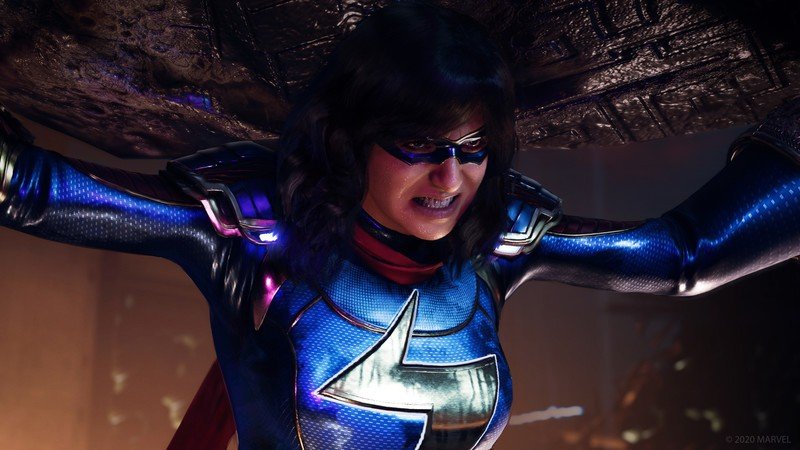
| Category | GameNameXXX |
|---|---|
| Title | Marvel's Avengers |
| Developer | Crystal Dynamics |
| Publisher | Square Enix |
| Genre | Action co-op brawler |
| PlayStation Version | PlayStation 4 |
| Game Size | 46.721GB |
| Play Time | 12 hours (singleplayer) |
| Players | Single/Multiplayer |
| PlayStation Now | No |
| Launch Price | $60 |
I've already written about the story in some early impressions, but to sum it up: Marvel's Avengers' strongest selling point is its single-player campaign. Throughout the approximately 12-hour playtime, you get a solid, coming-of-age arc starring Kamala Khan, a.k.a. Ms. Marvel, as she brings the Avengers back together following A-Day, a tragic event that ignited the creation of the Inhumans and "killed" Captain America. During an Avengers celebration, the team's experimental Helicarrier exploded, blanketing San Francisco in Terrigen gas and turning the entire city into a quarantine zone. There was widespread backlash against the heroes and the team split up.
Kamala was at the event after winning a fanfiction contest, and her Inhuman genes are activated. Five years later, she's back in Jersey City, struggling with how to handle being Inhuman when they've become enemy number one. Beyond discrimination, she's found information about a possible alternate truth behind Captain America's death and the explosion, so she goes on the run from AIM, a scientific organization run by George Tarleton, a.k.a. MODOK, that serves as the Big Bad here. That's when she teams up with Bruce Banner and sets out to get the band back together.
It's a basic setup for a story, but through Kamala's eyes, it's effective. Despite the marketing that played down Kamala's role as the main protagonist in the game, this campaign belongs to her. Beyond being a female, Muslim, Pakistani-American superhero, she's appropriately wide-eyed and optimistic, something the rest of the Avengers lack following A-Day and something refreshing among the dark, nihilistic games we saw often in 2020.
The campaign is a love letter to superheroes and what they mean to fans.
She's not overtly upbeat that it becomes grating, either. She's insecure about her powers and her role on the Avengers 2.0 but is also coming to terms with her place as an Inhuman in a world that thinks they're sick and dangerous. She's full of inner conflicts that aren't solved by the end of the campaign, but end up in a place that is comforting. When she's able to take down the bad guy at the end in a great spectacle setpiece, it feels earned. It's messy, and it doesn't make Kamala the best superhero, but it solidifies her most important traits: her determination and love of heroes. This shows in her relationship with Bruce, which turns into a loving but awkward father/daughter dynamic that brings out the best in both characters.
Get the latest news from Android Central, your trusted companion in the world of Android
The campaign is a love letter to superheroes and what they mean to fans, both in and out of the Marvel universe. The opening scene is a walkthrough of the Avengers celebration from Kamala's point of view. She plays games, gathers comics, interacts with other fans, and encounters the Avengers for the first time. Captain America, Black Widow, and the others are all heroic standing in their costumes, but with real moments of tenderness. At one point, Kamala is being picked on by fans for her fanfiction, but Captain America and Black Widow show up and are able to recall her story by name. These aren't just heroes in name only.
Marvel's Avengers and its surprisingly complex gameplay

Another one of the game's stronger points involves the varied combat system. Each of the six starter playable characters (there are more to come) has their own move set that draws upon a different playstyle. The Hulk and Ms. Marvel are the tanks, rushing in slowly for maximum damage and crowd control, while Black Widow is great for long-range combat and support. Iron Man is arguably the most complex since you can play him multiple ways depending on your preferences (you can use his phasers for long-range damage but can also fly around the map and get in close with enemies). Thor comes in with the area of effect damage and Captain America is acrobatic and combo-driven, a hitter in the purest form.
At first glance, the combat might seem simple. You can technically get by with some button-mashing with each of the characters. If you've played a brawler before, you know that there's some wiggle room. You can go all-in on a combo-based system like in the Arkham games or you can switch between light and heavy melee attacks until you're blue in the face. There were definitely moments when I relied on the latter in Marvel's Avengers, but the game is a lot more fun if you think about the former. This becomes especially important when you're building out your skill trees. Each character starts off with their abilities, but you can add variations as you level up, crafting a Ms. Marvel that takes on more of a support role or a Hulk that can kill enemies in one hit.
The game does a good job ensuring you understand each of the characters as you play. The opening level serves as a blanket tutorial for the five main Avengers and you get to try each of them. However, as the game goes on and they're reintroduced to the team, you get more in-depth explanations of their abilities. There are some similarities between them, like how each has light and heavy attacks, along with an Ultimate ability and a counter. It makes it easy to switch between them, especially if it's been a few hours since you've tested out Iron Man's flight, for example. To really master a character though takes time and dedication to building up their skills the way you want them to. That allows the game to become more combo-driven and your moves more effective.
Unfortunately, Marvel's Avengers dedicates so much effort to make each character distinct that it gets hung up in those small details. The jargon on-hand is super complicated; instead of health bars you get a Willpower gauge. The Hulk has a Rage meter while other characters have Intrinsic abilities, or ones based on this game's version of stamina. If you want to perfect your playstyle, you need to buy into its dictionary of new gaming terms, which are unnecessarily confusing. I tended to avoid the naming conventions and focused on what they did, but it still caused some growing pains as I learned to play.
Welcome to the Avengers Initiative: Multiplayer and live service elements
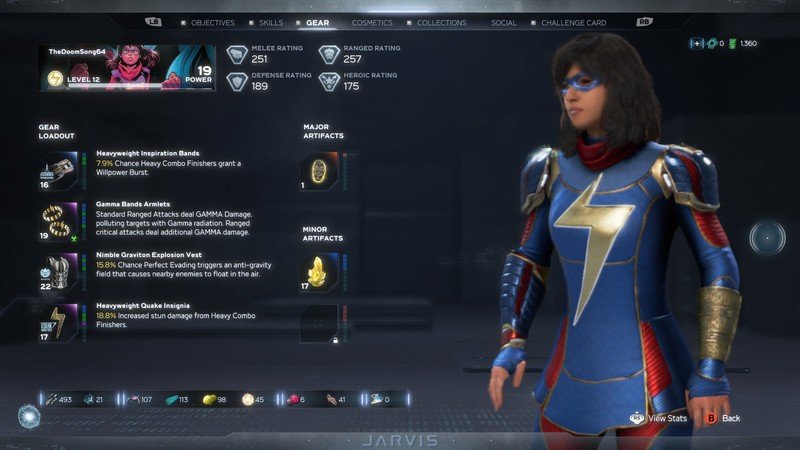
After you complete the campaign (which you can only play solo, although confusingly you can play War Zone and Drop Zone missions that pop up with others), you can join the Avengers Initiative and complete co-op missions. You can play online with up to four players through a matchmaking or invite system. Any slots you don't fill with players will be taken up by AI, so you'll always have a four-player team.
Will you want to stick around? That's the question on everybody's minds with Marvel's Avengers.
Matchmaking is all standard. You turn it on, sit back, and wait for your team to populate. Of course, it's much quicker to have friends to play with, but depending on how many people are playing, it can take a couple of minutes to get a team together. Through all my time playing the multiplayer, I was never able to get a full team together, although AI will do just fine in a pinch. Once there's a strike team, you drop into your mission and complete it.
Communicating is where things get complicated — or rather, the lack of robust communication options makes things complicated. There's voice chat, but no other options if you don't want to go live. There's no pinging system, but with the press of a button, you can see where everybody is on the map and congregate if you want. Most multiplayer maps have various smaller objectives along with one main one, so your team could potentially split up. In general, you'll want to stick with your team, which makes sense since the whole point of the game is to get a team back together.
But will you want to stick around? That's the question on everybody's minds with Marvel's Avengers. Unlike the solo campaign, which is full of heart and character moments, the multiplayer missions are shallow and uninspired. There is some variance between them in terms of specific goals, but implementation is the same whether you're trying to unlock a vault or hack an AIM facility with JARVIS on hand (the AI is always around to tell you where strongboxes with loot are, which is more annoying than helpful). The enemies are also indistinguishable from each other minus some that obviously have buffs or shields. This changes up gameplay slightly but doesn't do enough to differentiate any of the missions.
The small exceptions are the ones apart of some of the characters' mission chains. Thor, for example, has an amusing plot involving a fake Thor gathering followers, so the ends of those related missions are worth the price of admission. The gameplay is still the same, however.
You complete missions to unlock more missions and to get rewards. The currency and resource system in Marvel's Avengers is complicated but unnecessary to delve into. There are a lot of types of resources you can gather that you can use to upgrade gear you collect that boosts your abilities, or that you can trade into various Vendors. There are also faction missions you can complete to unlock rewards with SHIELD or the Inhumans, for instance. Besides some fun costumes, there isn't much worth unlocking. Here's a quick tip: don't buy any gear from the merchants because you'll likely find better ones along the way.
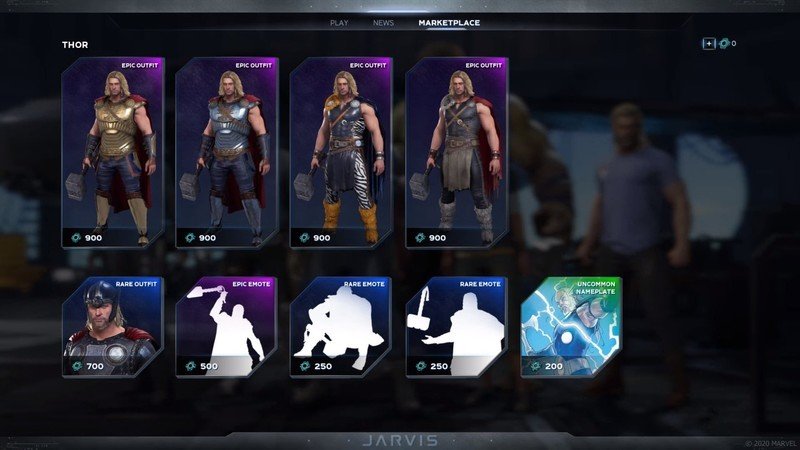
All of this makes the co-op seem tacked on, at least compared to the strength of the story. At least in the solo campaign you had quiet, character moments to latch onto, and various goals to complete. Otherwise, it's a grind that quickly becomes repetitive. With few rewards worth working towards too, you have to wonder what the point of it is beyond setting up the dreaded live service portion.
Despite everything Marvel's Avengers offers, the marketing for the game focused closely on the live service elements. They're not as egregious as other games have been, but there are some microtransactions. Namely, if you want to unlock the premium Challenge Card for each post-launch hero (and there are three announced so far with more to come, including Spider-Man, who'll only be coming to the PlayStation), it'll cost you 1,000 Credits, or around $10 in real-world money. The heroes themselves will be free, with the Challenge Card only offering extra skins or other cosmetics.
The potential for upcoming heroes like Kate Bishop is high, especially after seeing how much personality they imbued with Ms. Marvel. However, with mission chains being as bland as they are currently, it makes me wonder if Crystal Dynamics has another plan in mind to liven up the multiplayer encounters. If not, the hype surrounding characters like Kate Bishop coming to the game will fizzle out quickly.
All of that doesn't even take into account the massive amount of bugs I and many other players have experienced across platforms. There are long loading times, audio sometimes doesn't load in, and characters have bugged out in laughable but excruciating ways. This will be fixed in patches and updates, but the game is in a sad state at launch.
Marvel's Avengers: Should you buy?
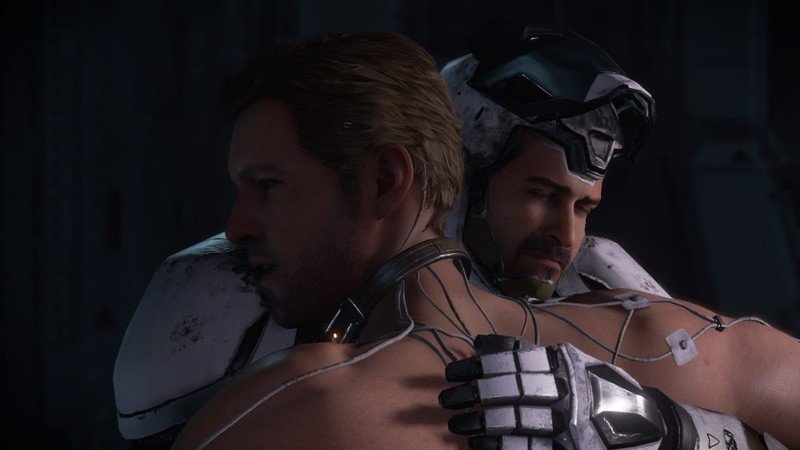
I don't want to harp too much on the marketing; this is a review of a game, not a marketing strategy. That being said, it's confounding how there are two games being reviewed here. One is a strong single-player experience with a charming female lead and a character-driven story on the nature of heroics. It's also a story held up by a need to honor the superheroes we grew up with and posits them as imperfect forces for the overall good. The other is a co-op, live-service grind that does nothing to innovate on the system and becomes a repetitive mess with few rewards to strive and earn.
3.5 out of 5
The game has been out a week at the time of publication, and the consensus seems to be that while the story is worth playing, almost for Kamala alone, the multiplayer is set to fade away. This is a shame, especially with games like Marvel's Avengers relying on those live service elements to make money over time.
Therein likes the problem with a live service model. Players are always going to buy-in to an incomplete experience in the hopes that future updates and releases will make it worthwhile. The most one can hope for is a strong foundation that make upcoming expansions at the very least intriguing to check out. Marvel's Avengers has that foundation, but it's in the wrong arena. If Crystal Dynamics and Square Enix wanted to make a live service game, there is a lot of work to still be done. If they wanted to make a complex brawler with great characters and a strong story, then they succeeded.
This is a tale of two games, and one will certainly eclipse and swallow the other.
Marvel's Avengers is out now for PS4, Xbox One, Stadia, and PC. It'll be coming to PS5 and Xbox Series X.
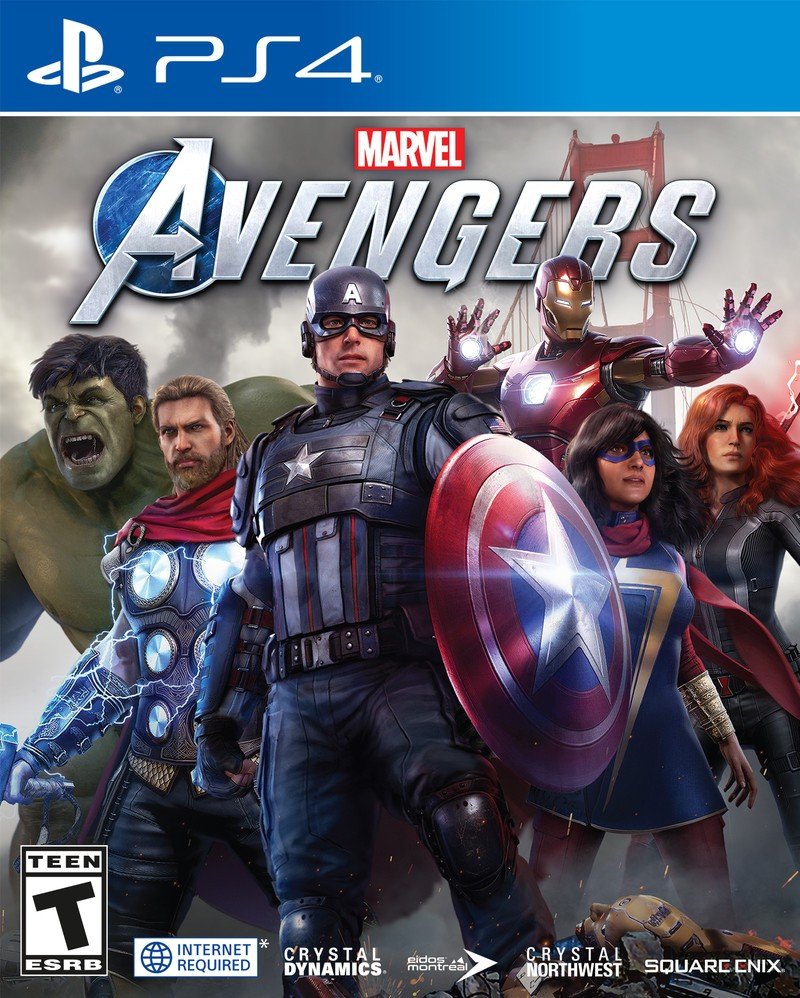
Marvel's Avengers
Bottom line: Marvel's Avengers is two games of wildly differing quality. You'll get a strong solo campaign with some great combat, but you'll also get repetitive, grindy multiplayer and weak live service elements.
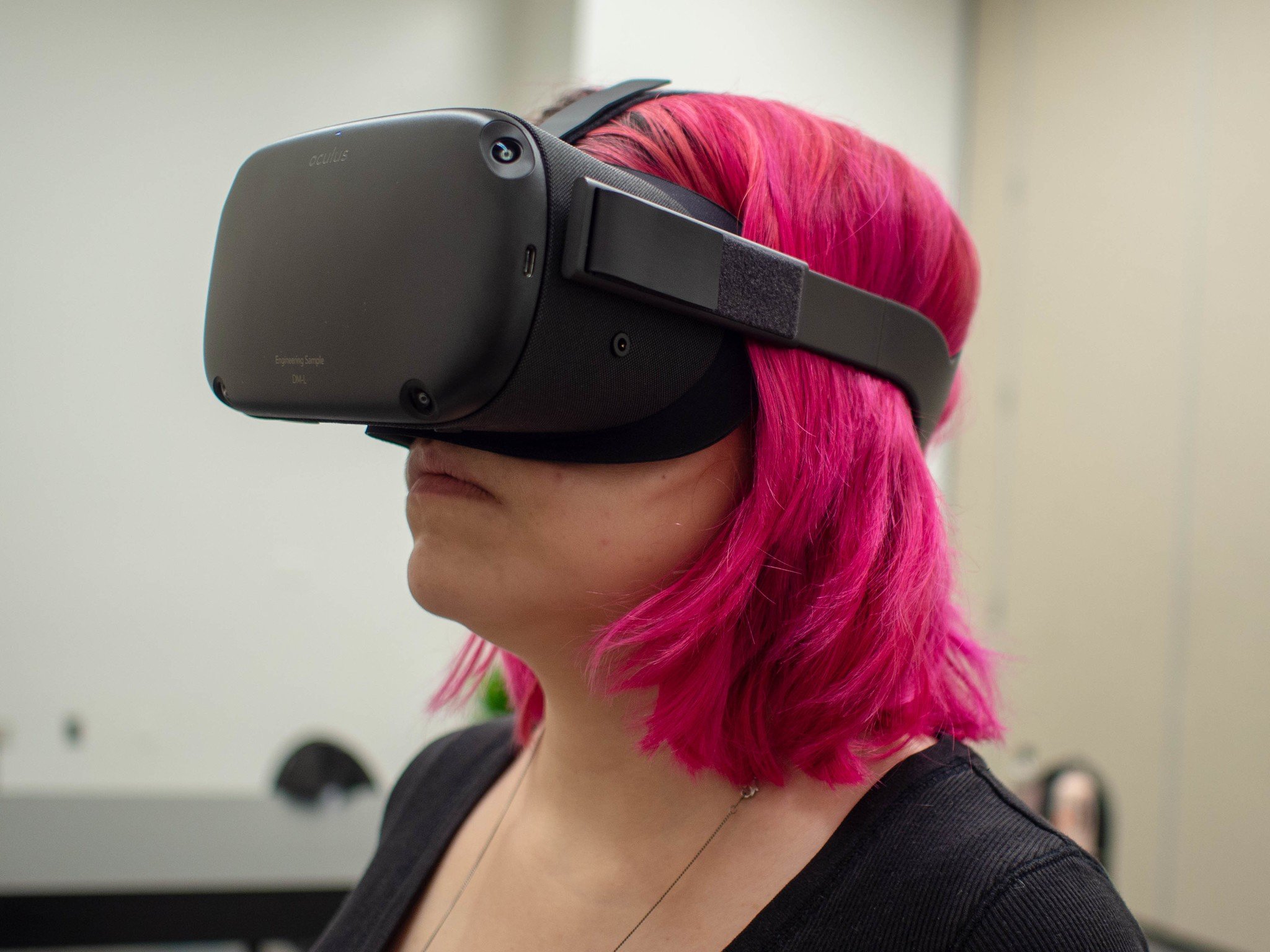
Carli contributed gaming content across Windows Central, Android Central, and iMore. Her last name also will remind you of a dinosaur. F
